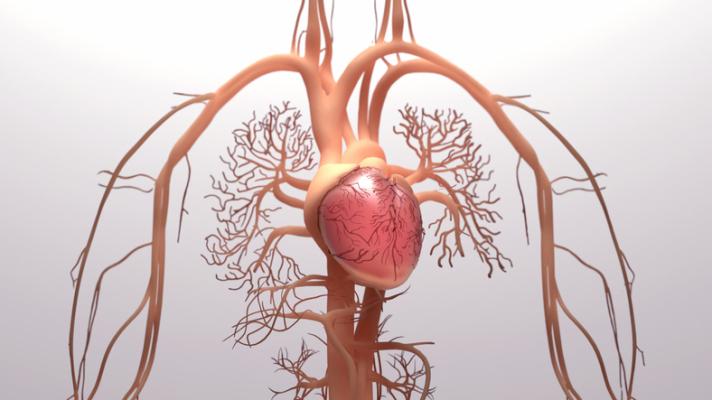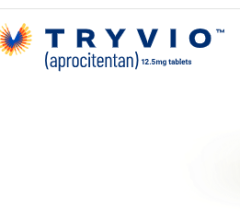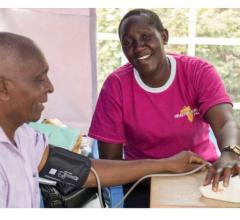
Getty Images
May 6, 2024 — Tenax Therapeutics, Inc., a Phase 3, development-stage pharmaceutical company focused on identifying, developing and commercializing products that address cardiovascular and pulmonary diseases with high unmet medical need, announced that the United States Patent and Trademark Office (USPTO) has granted the Company a patent covering the use of TNX-103 (oral levosimendan), TNX-102 (subcutaneous levosimendan), TNX-101 (IV levosimendan), the active metabolites of levosimendan (OR1896 and OR18955) and various combinations of cardiovascular drugs with levosimendan when used to improve exercise performance in PH-HFpEF patients, titled: “LEVOSIMENDAN FOR TREATING PULMONARY HYPERTENSION WITH HEART FAILURE WITH PRESERVED EJECTION FRACTION (PH-HFpEF).”
“Expanding our intellectual property estate for levosimendan is a strategic priority for Tenax. We are committed to protecting the future commercial value of our innovative PH-HFpEF treatment,” said Chris Giordano, President & Chief Executive Officer of Tenax Therapeutics. “The important, additional IP protection this patent provides will help us maximize the value of levosimendan as we seek to address one of the largest unmet needs in cardiovascular medicine today.”
This newly issued patent, U.S. Patent No. 11,969,424, provides protections through December 2040, including expanded IP rights to the use of oral, subcutaneous, and intravenous (IV) administration of levosimendan, as well as its active metabolites (OR1896 and OR1855) for the treatment of PH-HFpEF, at all therapeutic doses. The patent also provides IP protection for the use of combinations with various cardiovascular drugs, when used in PH-HFpEF patients.
The patents covering the use of IV and oral levosimendan for the treatment of PH-HFpEF rely on key discoveries Tenax Therapeutics made with the HELP Study, in which levosimendan-treated PH-HFpEF patients benefited from a statistically significant improvement in 6-minute walk distance of 29 meters (p=0.03) when IV levosimendan was compared with placebo. Patients who transitioned to the oral daily formulation after a lengthy treatment with the weekly IV formulation improved further in this assessment of exercise tolerance, which is the primary endpoint of the ongoing Phase 3 LEVEL study.
About the Phase 3 LEVEL Study ( NCT05983250 )
The LEVEL Study is a Phase 3, double-blind, randomized, placebo-controlled study of levosimendan in patients with PH-HFpEF. Approximately 152 subjects will be randomized in a 1:1 ratio to receive an oral dose of levosimendan (2 mg/day) or placebo for Weeks 1 to 4 and 3 mg/day or placebo for Weeks 5 to 12. The primary outcome measure for the study is change in six-minute walk distance from Baseline to Week 12. All randomized subjects will have the option to enter the 92-week OLE following the completion of all study events at Week 12.
About Levosimendan (TNX-101, TNX-102, TNX-103)
Levosimendan is a unique, potassium ATP channel activator and calcium sensitizer that affects the heart and vascular system through multiple mechanisms of action. Initially discovered and developed by Orion Corporation in Finland, intravenous levosimendan is approved in 60 countries outside the United States for use in hospitalized patients with acutely decompensated heart failure. Results of Tenax Therapeutics’ Phase 2 HELP study of levosimendan in patients with pulmonary hypertension (PH) with heart failure with preserved ejection fraction (HFpEF) demonstrated that I.V. levosimendan produces potent dilation of the central and pulmonary venous circulations which translates into an improvement in exercise capacity, a discovery that is the basis of LEVEL, the Phase 3 investigation of Tenax Therapeutics’ potential groundbreaking therapy. To date, no other drug therapy has improved exercise tolerance in patients with PH associated with HFpEF, “a growing epidemic with high morbidity and mortality and no treatment. The clear unmet need and lethal nature of PH-HFpEF must be met with novel solutions at all levels of therapeutic development” (AHA Scientific Advisory, “A Call to Action,” 2022).
For more information: www.tenaxthera.com
Related content:
Penn Study Identifies New Prognostic Biomarker for Heart Failure


 September 09, 2025
September 09, 2025 









